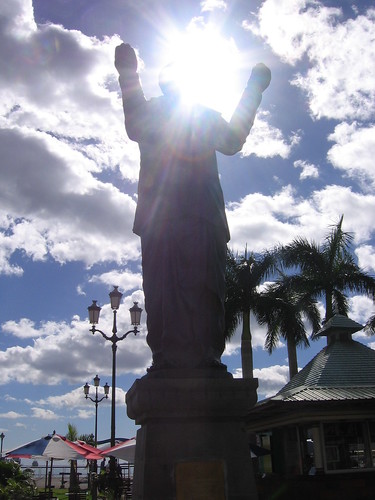Wikipedia, the language activist's friend
Whatever your views on Wikipedia as a piece of scholarship (and it certainly has plenty of flaws in that regard), by attempting to be a truly global online resource it has given a fillip to minority language activists the world over. After all, which traditional publisher would even consider an encyclopaedia in Cornish?
A glance at the list of Wikipedias (Wikipedium?) reveals that there is at least one article posted in 198 different languages. And there are some interesting trends in the data: more articles in Dutch than in Spanish or Chinese; close to 30,000 articles in Esperanto, making it the 16th most common language on the site (ahead of Hebrew, Ukrainian and Korean); more articles in a language as obscure as Walloon, than in one as widely spoken as Persian.
Partly these trends are a result of demographics - many Belgians (where Walloon is dying out) are online, few Iranians. But more important, at least in some cases, is the activist effect. After all, there are many more Korean speakers on the web than Esperanto speakers, but Esperantists are proseletysers for their tongue, they have to push its benefits as a global lingua franca (see previous post). Similarly, the few remaining speakers of a dying language such as Walloon will try their utmost to keep the embers alive. Other European minority tongues - Welsh, Limburgs, Neapolitan - are also comparatively highly-placed in the ranking, further evidence of the activist effect.
A glance at the list of Wikipedias (Wikipedium?) reveals that there is at least one article posted in 198 different languages. And there are some interesting trends in the data: more articles in Dutch than in Spanish or Chinese; close to 30,000 articles in Esperanto, making it the 16th most common language on the site (ahead of Hebrew, Ukrainian and Korean); more articles in a language as obscure as Walloon, than in one as widely spoken as Persian.
Partly these trends are a result of demographics - many Belgians (where Walloon is dying out) are online, few Iranians. But more important, at least in some cases, is the activist effect. After all, there are many more Korean speakers on the web than Esperanto speakers, but Esperantists are proseletysers for their tongue, they have to push its benefits as a global lingua franca (see previous post). Similarly, the few remaining speakers of a dying language such as Walloon will try their utmost to keep the embers alive. Other European minority tongues - Welsh, Limburgs, Neapolitan - are also comparatively highly-placed in the ranking, further evidence of the activist effect.

2 Comments:
Also seems to contain more than 11000 articles in a made-up language, Ido -- who can be posting all these articles? The same person 11000 times I suspect.
Good thoughts on Wikipedia's role in language activism. This site is very similar, the link happens to be to the site in Limburgish:
Limburgs wiki browser
Post a Comment
<< Home